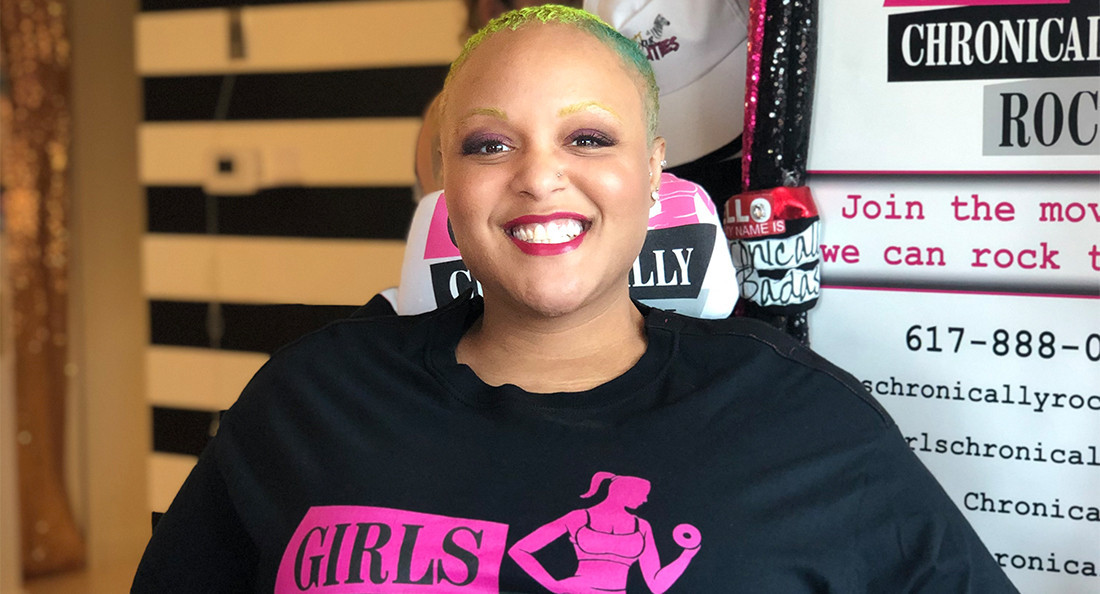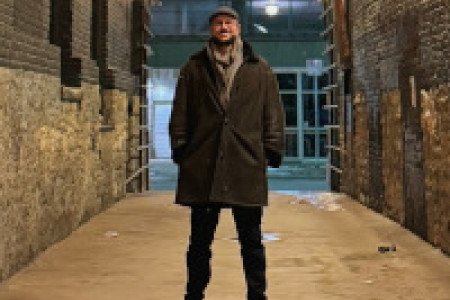The Uniter Speaker Series presents Keisha Greaves
A passion for adaptive fashion
Keisha Greaves truly believes some things happen for a reason. Of course, this sentiment comes with moments of grief and confusion. Certain hardships may always seem senseless in the grand scheme of things. But by adopting this outlook, Greaves maintains a spark of gumption that empowers her fabulous approach to life.
After all, she has a fashion empire to build.
Greaves is the business owner, CEO and founder of Girls Chronically Rock, a clothing brand made to motivate those in the disability community to pursue their passions in life and to spread awareness about adaptive fashion to able-bodied people.
“I don’t just look at Girls Chronically Rock as a clothing brand. I look at it as a movement,” she says.
Greaves was diagnosed with muscular dystrophy at age 24. The decline in her physical ability was gradual, at first.
“When I was first diagnosed, I was still able to walk. I was driving, still doing me, working in the merchandising field.”
As things got worse, Greaves had to cope with no longer being able-bodied. She questioned how her disability would impact her dream of being a fashion designer and business owner.
“I totally shut down,” Greaves says.
At first, she was in denial. Coming to accept her new situation took time, but with the help of her support system and other members of the disability community, she managed to find some solace and a way to adapt her dream into her new reality.
But once-simple things, like getting dressed, became infinitely more complicated as time went on.
“When I come out of the shower, it’s like I just finished the Boston Marathon,” she says. “To get dressed, putting on, say, leggings and a T-shirt, and that’s with a personal peer attendant’s help, it can be exhausting.”
It’s for this reason Greaves has a passion for adaptive fashion: clothing designed specifically to be more accessible, so the user can get dressed with less difficulty.
“We have regular merchandise, regular T-shirts, but I now have adaptive T-shirts on my website,” she notes.
But Greaves’ work goes well beyond creating adaptive garments.
An issue Greaves identified after being diagnosed was the lack of education regarding adaptive fashion in university programs.
In fact, despite having earned a bachelor’s in fashion design and merchandising, Greaves did not learn about adaptive fashion during her time at Framingham State University.
“That’s why I’m so excited now (that) I’m able to partner and collaborate with the fashion department at Framingham State, teaching them about adaptive fashion.
“I’m looking to get other colleges involved,” she says.
In addition to this undertaking, Greaves continues to find ways for her brand to grow.
This March, she plans on releasing an adaptive swimwear collection. The aim for the collection is to help motivate people with disabilities to participate in aquatic therapy and other water-related activities – and to look good at the same time.
“When I am in the pool, I feel like I’m a mermaid, because I can do things in the water that I can’t do on land,” she says.
“If I can create something like an accessible bathing suit, where it either has the hooks on the shoulder to easily take on and off, something like hooks or velcro in the lower crotch area ... that’s going to make a major difference.”
Although Greaves’ work is impressive and ongoing, she has to reckon with her disability every single day.
“I wake up every day not knowing what the muscular dystrophy wants to do,” she says.
Some days are worse than others, but even on a good day, going grocery shopping or to a restaurant poses a challenge. Even if a place is able to accommodate those in the disability community, other people tend to stare and be disrespectful.
Plus, Greaves will experience moments of self-doubt every now and then. She questions whether people are getting the message she’s trying to spread, or if her business will succeed.
Still, Greaves is proud of all that she’s accomplished. She’s happy to have worked through her denial and to know how to express her love for fashion in a way that makes a difference.
“I feel like this is my purpose.”
Knowing what she knows now, if she could go back to her 23-year-old self (when the symptoms of muscular dystrophy first began to surface), she would tell herself it’s going to be okay.
“You’re building something here. Keep going.”
Ultimately, that’s the message she wants people with disabilities to take in when they listen to her story.
But with her growing fashion empire, upcoming projects and dedication to the disability community, one thing’s for certain: Greaves’ story is only just beginning.
The Uniter Speaker Series presentation of A Conversation with Keisha Greaves will be held virtually at 7 p.m. on Thursday, Jan. 21. To attend, visit facebook.com/theuniter.
Published in Volume 75, Number 15 of The Uniter (January 21, 2021)







